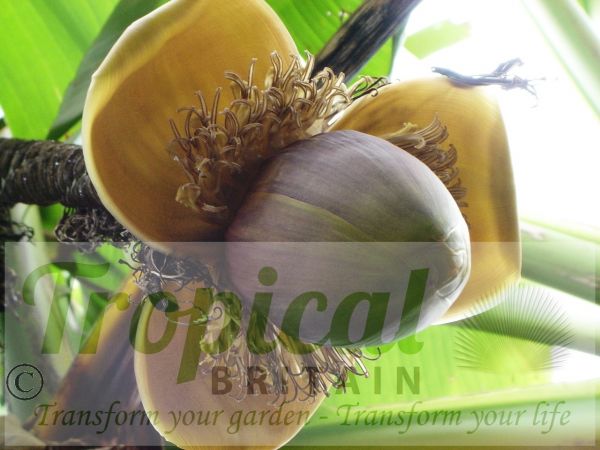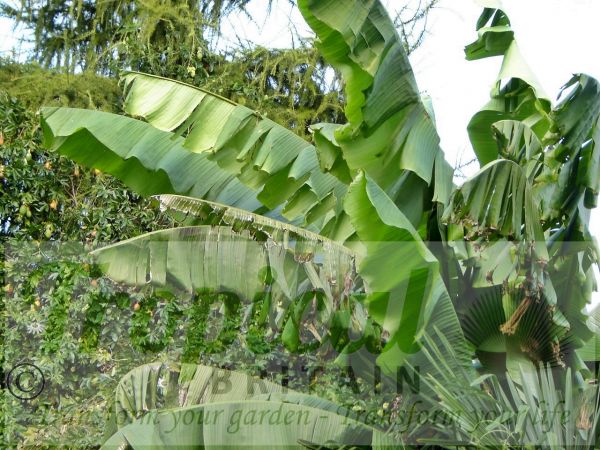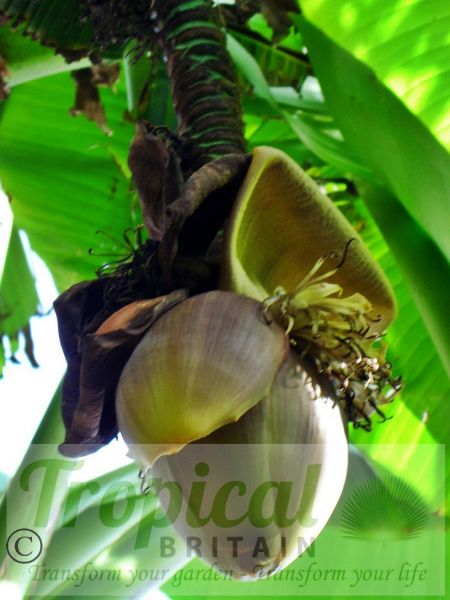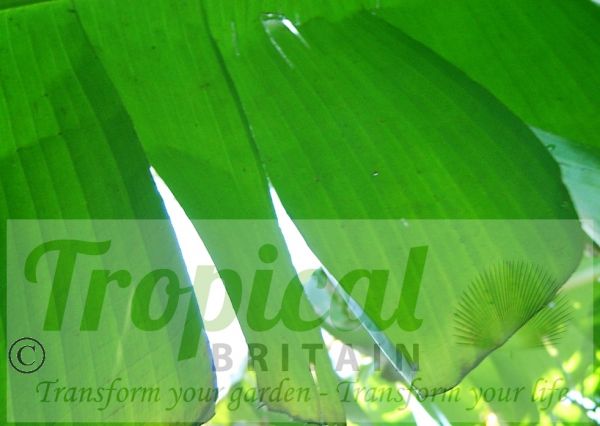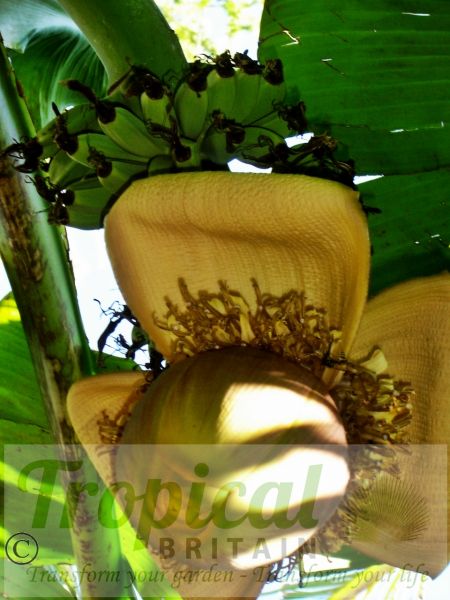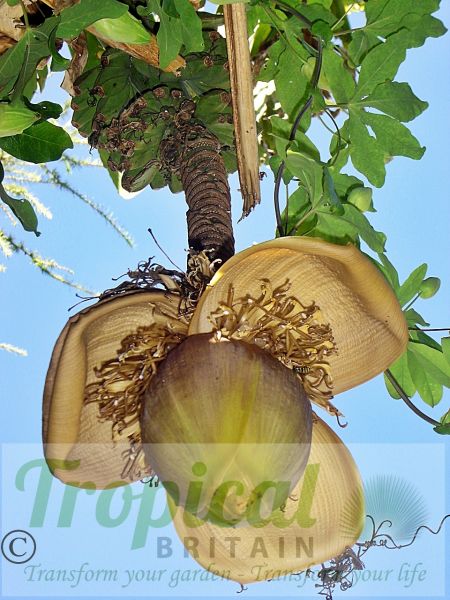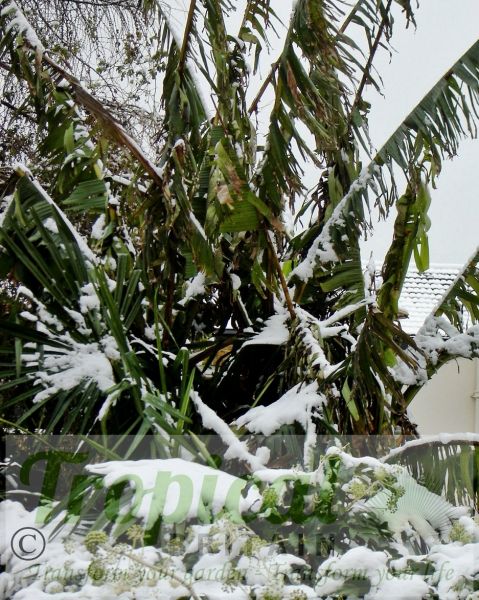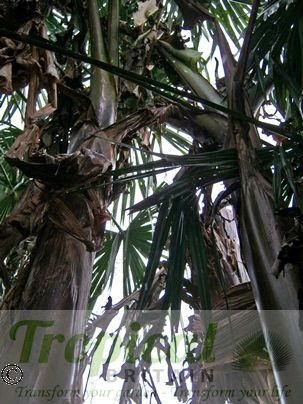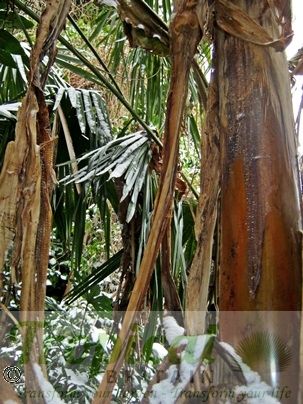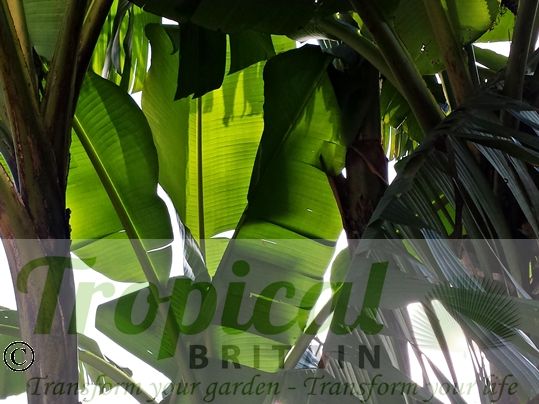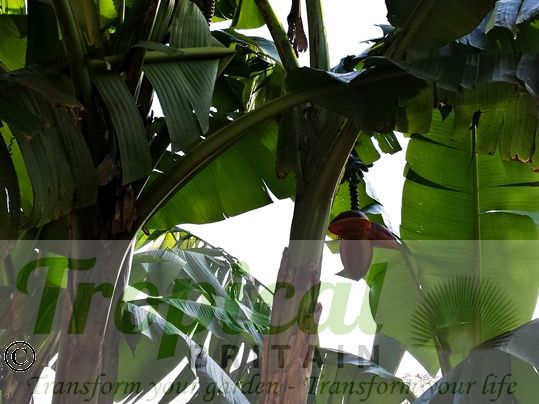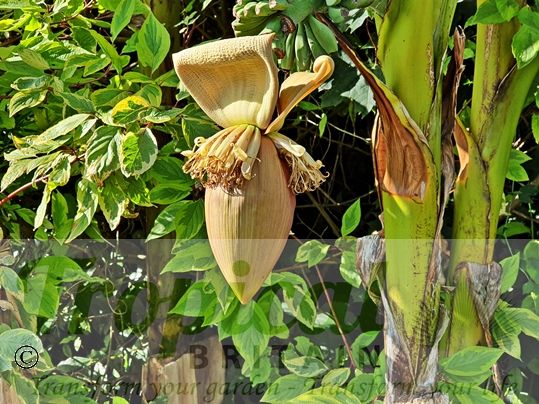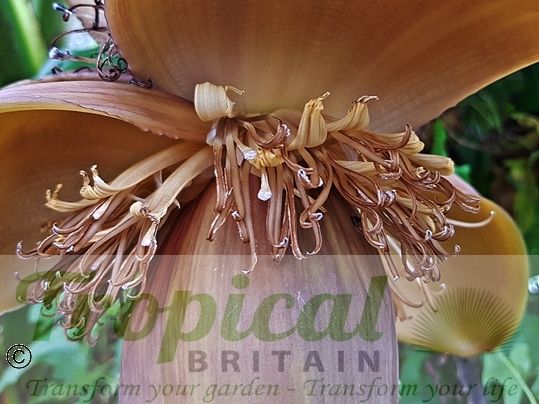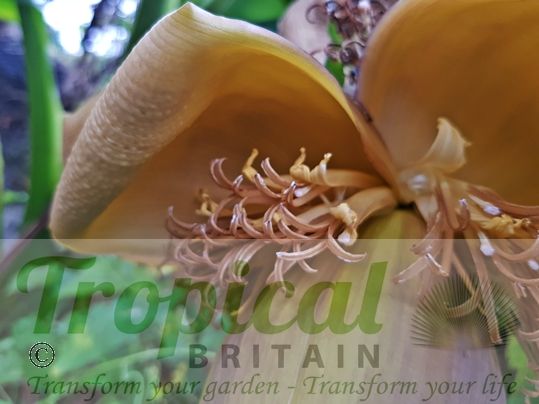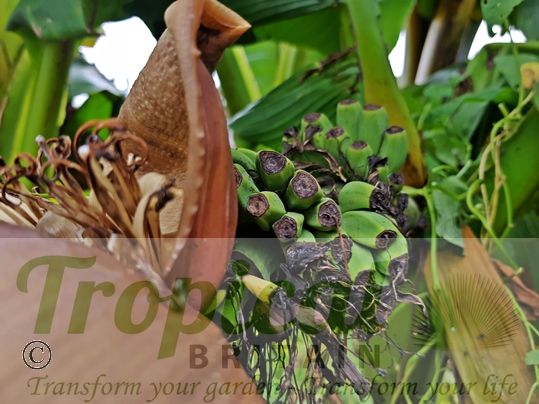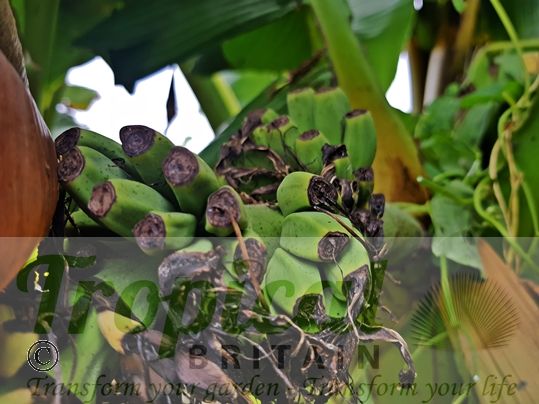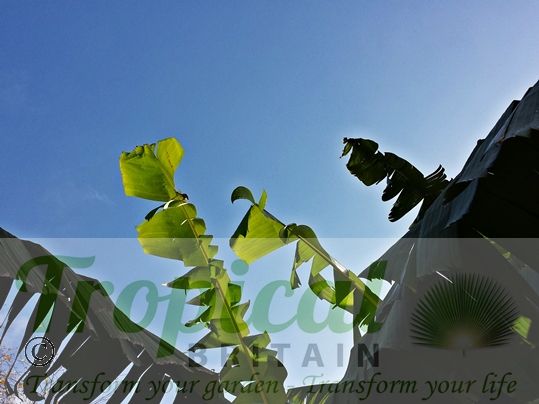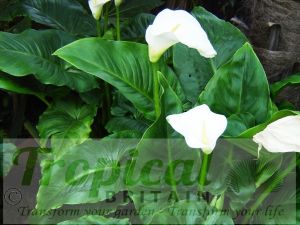Musa basjoo
The hardiest of the bananas, Musa basjoo is also very quick growing and - with its enormous, sail-sized foliage giving a luxuriant sense of lush jungle or the relaxed air of a colonial plantation - is an essential requirement for the Tropical British style. Surviving even the harshest winters (the winter of 2010-11 saw temperatures drop in most areas to between -10°C and -14°C), Musa basjoo is such a wonderful plant, it is surprising perhaps, that it isn't seen cultivated more often. All that it really requires is a little extra attention in the autumn months, particularly in its first two years, to prepare it safely for winter. Its foliage, like that of Cannas and Colocasias, is cut down by the first frosts and this is nothing to be concerned about. The parts of the plant you should be looking to protect are the roots and the thick pseudostem. There are a number of ways to do this - a thick mulching with straw, bark, hay or leaves around the roots, topped perhaps with bubblewrap or horticultural fleece and likewise the pseudostems can be wrapped in any dry insulating material: straw wrapped with fleece is ideal. Insulating the pseudostems ensures the plant already has some height from which to refoliate again. In the spring, as the weather warms up again, it bursts once again into life, new leaves emerging from the old trunks and new growth sprouting from its base. A small Musa basjoo planted in the spring and protected through its first two winters in this manner is perfectly capable of reaching 20 feet in its third year, after which it will already be a large multi-stemmed clump. Depending upon your location and the adjacent microclimate, it may not need much further winter protection - if any at all - in the following years although it is always a wise precaution.
Keep it well watered during the summer heat and fed with extra nitrogen to sustain those massive jungle-look leaves and it will eventually reward you with its huge and indescribably exotic-looking inflorescence. This extraordinary structure, a bulging pendulous mass of bracts, tepals, stigmas and stamens dangles down from above you from its thick and curiously-suggestive knobbly rachis like the flaccid member of some well-hung botanical horse. Small somewhat insignificant fruit bracts form from behind the base of the flower but they are - unfortunately - not edible.
Once thought to have been native to the Ryukyu islands of Japan, it is now understood to have been introduced there from China where it is found wild in Sichuan province.
An utterly indispensible plant for that tropical look, Musa basjoo is a no-brainer when creating a jungle garden. It brings an effortless exotic ambience together with a bold dramatic presence.
Additional Information
| Order | Zingiberales |
|---|---|
| Family | Musaceae |
| Synonyms | Musa basjoo var. basjoo, Musa japonica |
| Geographical Origin | China: Sichuan Province |
| Cultivation | Warmth. Enjoys full sun but will tolerate some shade. Shelter from the wind. Must be given copious quantities of water during the growing season and feed well |
| Eventual Height | 8 m |
| Eventual Spread | Clumps to 4 m with the older pseudostems dying off after flowering |
| Hardiness | Root hardy to at least -15 C. A herbacious perennial, the leaves are cut down by frosts. Mulch well and protect younger plants with horticultural fleece |

Free DELIVERY
ON ALL ORDERS OVER £99THIS OFFER IS VALID ON ALL OUR STORE ITEMS.

